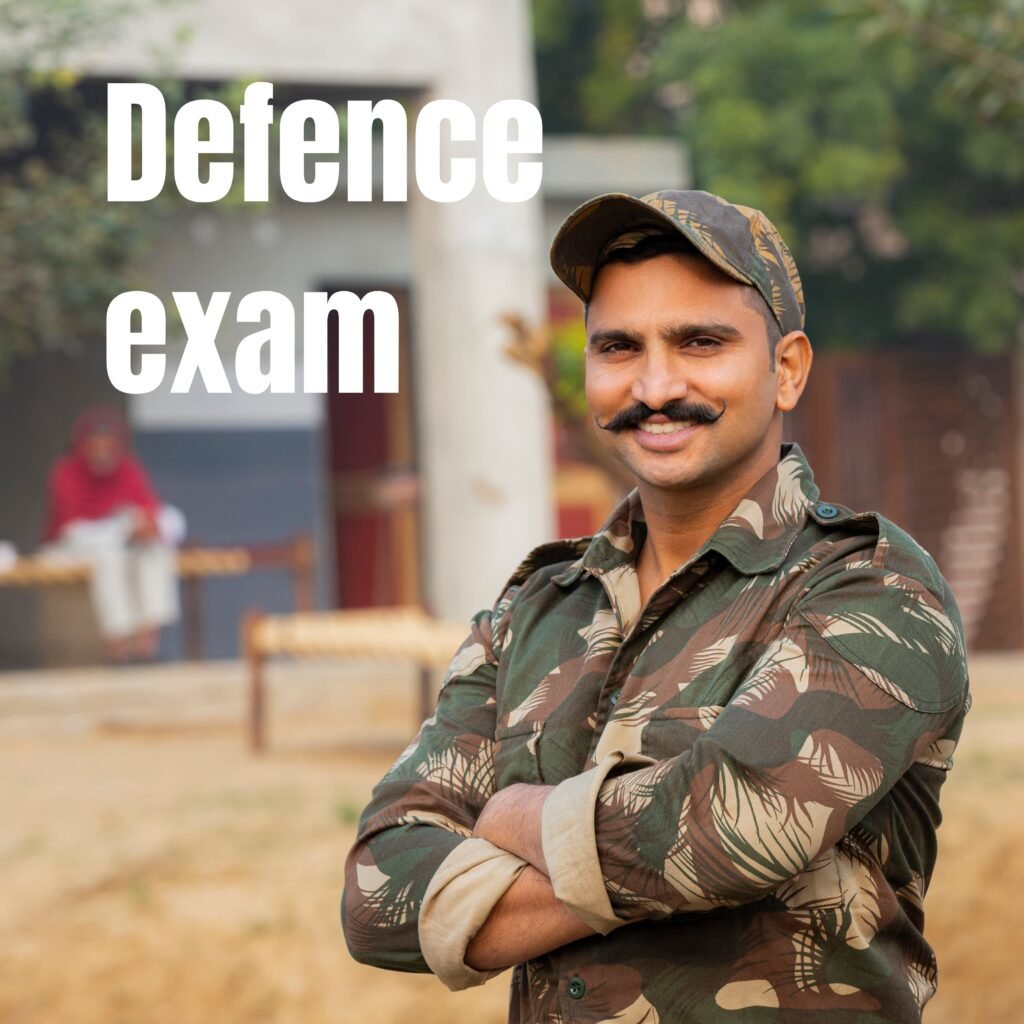Defence
NDA: For 10+2 candidates; entry to Army, Navy, Air Force via UPSC; includes Math’s and GAT. CDS: For graduates; entry to IMA, INA, AFA, OTA via UPSC; includes English, GK, Math’s. AFCAT: For Air Force officers; tests General Awareness, Verbal Ability, and Reasoning.
About Defence Exam
The term “defense exam” can refer to exams for military recruitment or tests related to civil services focused on defense in many countries. Here’s a general guide on the types of defense exams, eligibility criteria, selection process, and preparation tips.

Types of Defense Exams
Defense exams vary by country and role within the armed forces (Army, Navy, Air Force). Here are some major types: Examples:
- NDA (National Defence Academy) Exam (India): For joint services training for the Army, Navy, and Air Force.
- CDS (Combined Defence Services) Exam (India): For recruitment into the Indian Military Academy, Officers Training Academy, Naval Academy, and Air Force Academy.
- AFCAT (Air Force Common Admission Test) (India): For officer recruitment in the Air Force.
Eligibility Criteria
- Age: Typically between 16.5 and 25 years, though this can vary.
- Educational Qualifications:
- Officer-level exams: Usually require a bachelor’s degree, while some may accept candidates with high school qualifications (like NDA for 12th-grade graduates).
- Soldier-level exams: Often require a high school diploma or equivalent.
- Physical and Medical Standards: Candidates must meet physical standards for height, weight, vision, and other medical requirements.
Selection Process
Most defense exams follow a multi-stage selection process:
- Written Examination: Tests general knowledge, mathematics, reasoning, and language skills.
- Physical Fitness Test (PFT): Includes running, push-ups, sit-ups, pull-ups, and sometimes agility tests.
- Medical Examination: Checks for health conditions, vision, hearing, and overall physical fitness.
- Interview: For officer-level exams, a Service Selection Board (SSB) interview is often conducted, which assesses psychological, communication, and leadership abilities.
- Merit List and Final Selection: Based on performance across all stages, a merit list is prepared, and selected candidates undergo training.
Exam Pattern and Syllabus
The written exams generally cover:
- English Language: Grammar, vocabulary, comprehension, and sentence structure.
- General Knowledge and Current Affairs: Questions on history, geography, politics, sports, science, and current national and international events.
- Mathematics: Topics like algebra, trigonometry, arithmetic, statistics, and geometry.
- Reasoning: Logical reasoning, analytical skills, and pattern recognition.
For instance:
- NDA Exam (India): Consists of Mathematics and General Ability Test papers.
- CDS Exam (India): Includes sections on English, General Knowledge, and Elementary Mathematics.
Resources for Preparation
- Books: Find specific books tailored to the defense exam you’re preparing for (e.g., “Pathfinder for NDA/NA” or “Arihant CDS” for the CDS exam).
- Online Platforms: Websites, apps, and YouTube channels offer lectures, practice tests, and exam guidance.
- Physical Training: Join a fitness or defense training academy to get hands-on experience with physical test requirements.
Application Process
Applications for defense exams are generally available online via the official websites of the respective defense organizations (e.g., UPSC, Indian Army, Indian Air Force). It’s essential to follow application deadlines and instructions on these official sites.
